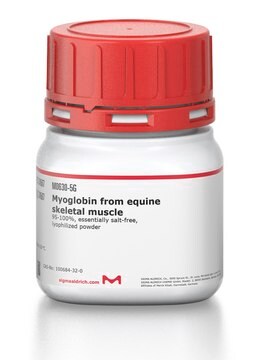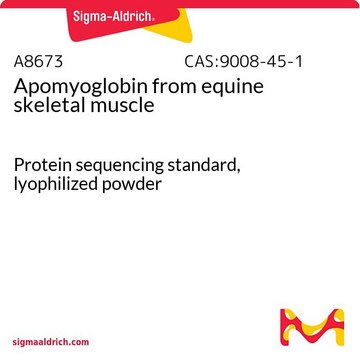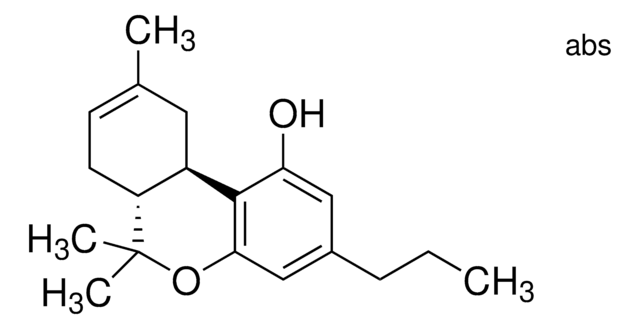C-046
Cannabinol solution
1.0 mg/mL in methanol, ampule of 1 mL, certified reference material, Cerilliant®
About This Item
Recommended Products
grade
certified reference material
Quality Level
form
liquid
feature
SNAP-N-SPIKE®, SNAP-N-SHOOT®
packaging
ampule of 1 mL
manufacturer/tradename
Cerilliant®
concentration
1.0 mg/mL in methanol
technique(s)
gas chromatography (GC): suitable
liquid chromatography (LC): suitable
application(s)
cannabis testing
cannabis testing
format
single component solution
storage temp.
−20°C
SMILES string
CCCCCc1cc(O)c-2c(OC(C)(C)c3ccc(C)cc-23)c1
InChI
1S/C21H26O2/c1-5-6-7-8-15-12-18(22)20-16-11-14(2)9-10-17(16)21(3,4)23-19(20)13-15/h9-13,22H,5-8H2,1-4H3
InChI key
VBGLYOIFKLUMQG-UHFFFAOYSA-N
Looking for similar products? Visit Product Comparison Guide
General description
Cannabinol is a phytocannabinoid that belongs to the class of C21 terpenophenolic compounds. Found in the cannabis plant it is a metabolite of Δ9-THC, the main psychoactive component of cannabis. Cannabinol is also the primary product of THC degradation from exposure to air and light.
Application
- Estimation of four cannabinoids from an oil matrix using reversed-phase high-performance liquid chromatography (RP-HPLC) combined with a diode array detector (DAD)
- Simultaneous analysis of 11 cannabinoids in biomass and extracts of different cannabis varieties by an HPLC-UV method, following the International Conference on Harmonization (ICH) Tripartite Guideline for Validation of Analytical Procedures
- Determination of eight cannabinoids in eight hemp samples and 12 forensic cannabis samples using reversed phase-high-pressure liquid chromatography (RP-HPLC) in combination with UV detector
- Analysis of dried marijuana flowers to measure the amount of nine cannabinoids by high-performance liquid chromatography (HPLC) along with UV detection
- Development and validation of an ultra high-performance liquid chromatographic (UHPLC) method coupled to photodiode array and mass spectrometry detectors to determine 11 cannabinoids in various Cannabis Sativa samples
- Quantitative analysis of 17 cannabinoids in cannabis and hemp samples by LC-MS/MS following their liquid-solid extraction following AOAC and ASTM guidelines for cannabis and hemp matrices
Features and Benefits
- Fully characterized under ISO/IEC 17025 and ISO 17034 accreditation
- Accompanied with a comprehensive Certificate of Analysis (CoA) with data on stability, homogeneity, accuracy of concentration, uncertainty, and traceability
- Rigorously tested through real-time stability studies to ensure accuracy and shelf life
- Gravimetrically prepared using qualified precision balances to ensure minimal uncertainty
- Flame sealed under argon into ampoules for long-term shelf life
- Offered in a convenient, DEA-exempt format to improve laboratory efficiency
Legal Information
related product
Signal Word
Danger
Hazard Statements
Precautionary Statements
Hazard Classifications
Acute Tox. 3 Dermal - Acute Tox. 3 Inhalation - Acute Tox. 3 Oral - Flam. Liq. 2 - STOT SE 1
Target Organs
Eyes,Central nervous system
Storage Class Code
3 - Flammable liquids
WGK
WGK 2
Flash Point(F)
49.5 °F - closed cup
Flash Point(C)
9.7 °C - closed cup
Choose from one of the most recent versions:
Certificates of Analysis (COA)
It looks like we've run into a problem, but you can still download Certificates of Analysis from our Documents section.
If you need assistance, please contact Customer Support.
Already Own This Product?
Find documentation for the products that you have recently purchased in the Document Library.
Articles
The cannabinoids found in the Cannabis plant commonly referred to as marijuana, have grown in popularity for treating a variety of ailments from arthritis, glaucoma, and chronic pain to malnutrition, multiple sclerosis, and cancer.
Tetrahydrocannabinolic acid A solution, 1.0 mg/mL in acetonitrile, ampule of 1 mL, certified reference material.
Protocols
Tetrahydrocannabinolic acid A solution, 1.0 mg/mL in acetonitrile, ampule of 1 mL, certified reference material; Cannabichromenic Acid (CBCA) solution, 1.0 mg/mL in acetonitrile, certified reference material, ampule of 1 mL
Rapid potency testing of marijuana-infused edibles using LC/MS on a biphenyl stationary phase detected eleven cannabinoids.
HPLC separation of 17 important cannabinoids including CBD, delta 9 THC and THCA. Read the application note
Our team of scientists has experience in all areas of research including Life Science, Material Science, Chemical Synthesis, Chromatography, Analytical and many others.
Contact Technical Service






